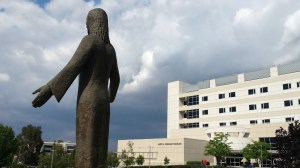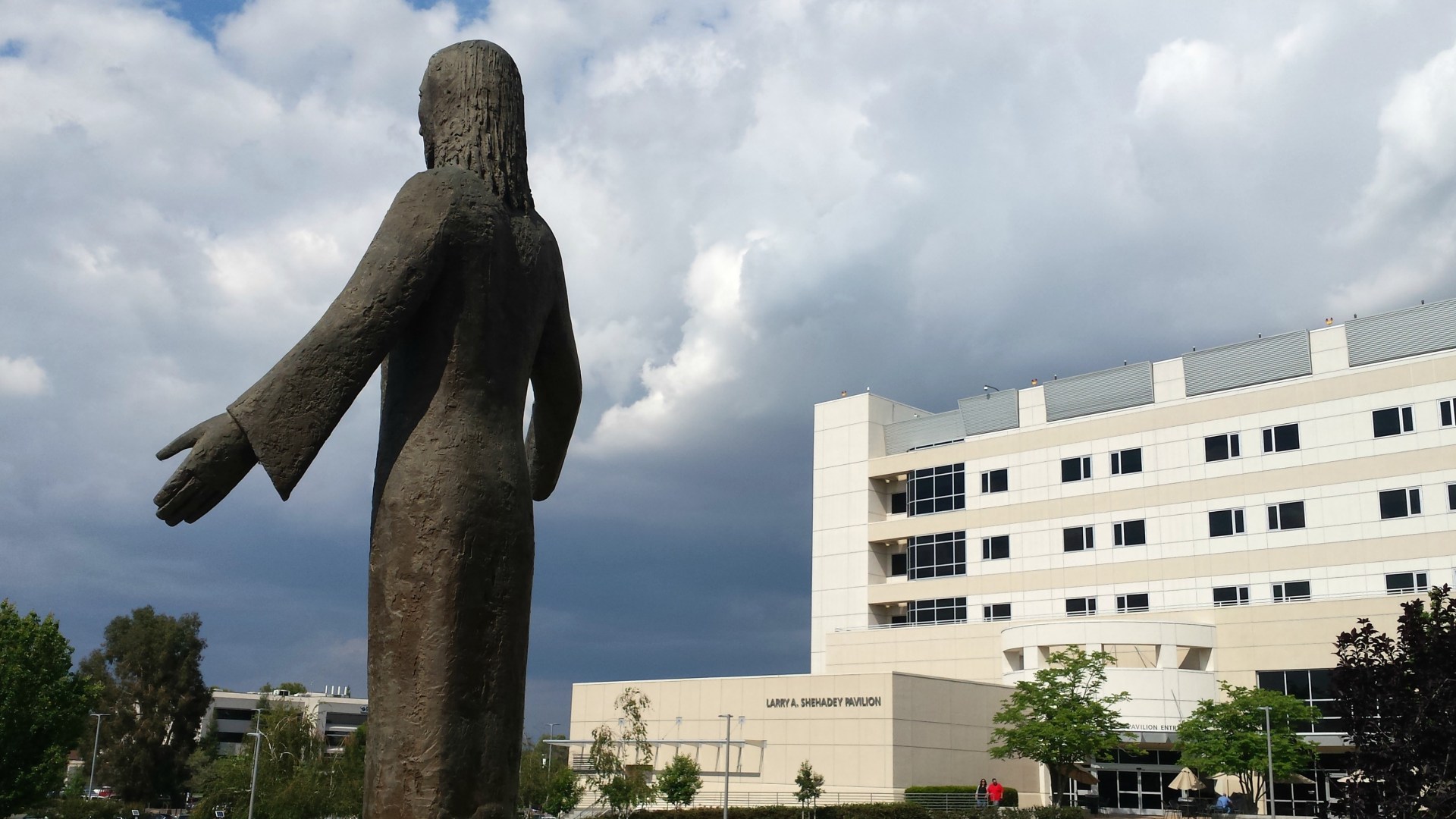In this series

Today the US Supreme Court heard a trio of lawsuits on pension plans at Christian hospital systems. So far, the panel of justices seems torn over whether religiously affiliated employers fall under federal requirements for pension benefits.
Churches are exempt from the US Employee Retirement Income Security Act (ERISA). But the current cases challenge whether such standards apply to employers that are merely affiliated with churches: hospitals, schools, and daycares, for example.
Employees who filed the suits argue that the hospitals should comply and, in some cases, pay billions to make up for benefits their workers have missed out on.
The Supreme Court’s eventual ruling on the issue, which Religion Clause picked as the No. 4 church-state development of 2016, will impact dozens of similar cases as well as the budgets of a significant slice of America’s healthcare system. (For example, the American Civil Liberties Union found that last year, Catholic hospitals alone provided 1 in 6 patient beds available.)
The hospitals involved in the litigation include Dignity Health, which operates Catholic hospitals and employs 60,000 people in 20 states; Advocate, which is affiliated with the Evangelical Lutheran Church in America and the United Church of Christ and employs 33,000 people in Illinois; and Saint Peter’s Health Care System, which is affiliated with the Catholic Church and located in New Jersey, according to Bloomberg News.
The Internal Revenue Service has allowed the Christian hospitals—and hundreds of other religious affiliated institutions—to claim ERISA exemptions. Because of decades of federal approval, the institutions believed they were “proceeding in good faith with the assurance of the IRS that what they were doing was lawful,” said Justice Anthony Kennedy at Monday’s hearing.
However, lower courts have recently ruled against the hospitals, which the Catholic and Lutheran groups argue will have a “devastating financial effect on religious employers and plan participants.”
“If Advocate and hundreds of other religious hospitals around the country were forced to follow for-profit rules, money currently used to serve the poor and inner city communities would be lost and many would be forced to shut down,” according to Becket, a religious liberty non-profit.
ERISA exempts plans “established and maintained for its employees by a church,” and a 1980 amendment added exemptions for “a plan maintained by an organization … controlled by or associated with a church.” Now the debate hinges on whether affiliate organization plans must have been initially created by churches or not.
“If this court embraces an ‘established by the church’ requirement, then federal agencies and courts will have no choice but to make sensitive determinations … about which religious organizations should be deemed a ‘church’ and which shoud not,” wrote the United States Conference of Catholic Bishops in a friend of the court brief.
Christian religious liberty advocates, including the Alliance Defending Freedom and the Council for Christian Colleges and Universities, have also taken the hospitals’ side. Becket stated that denial of the exemption would “entangle the state in religious decision-making and interfere with church autonomy.”
Reuters reported:
All three courts found that the plain language of ERISA allows the exemption only for organizations set up by churches to manage their employee pension plans, not for wholly separate entities like hospitals. They rejected hospitals’ arguments that they relied on opinions from the Internal Revenue Service, which has allowed them to claim the church plan exemption since the early 1980s.
The extent of hospitals’ potential liability is not clear, since church plans are not subject to the reporting requirements of ERISA. The employees suing St. Peter’s and Dignity claim that their plans are underfunded by about $70 million and $1.2 billion, respectively. Advocate is also accused of underfunding its plan, though the complaint in that case does not say by how much. The hospitals have denied their plans are underfunded.
The Supreme Court will issue its decision in June. A reversal of the lower court rulings would allow hospitals affiliated with religious institutions to continue to provide their own pension plans outside of ERISA requirements; however, “if the Supreme Court upholds the circuit court decisions, HR professionals working for those organizations may have a relatively short period of time to get their pension plan funding up to where it needs to be,” said Tiffany Downs, an employment benefits attorney.
It’ll be a costly process. As The Atlantic reported, under ERISA, employers pay into the Pension Benefit Guaranty Corporation to insure worker benefits will be there at retirement.
Weeks before the Supreme Court heard arguments in the ERISA cases, another Christian hospital system—Holy Cross—settled its $9 million case in an Illinois district court.
CT has previously reported on such pension tensions, including how the IRS made the unusual move to reverse an ERISA decision in 2013.











